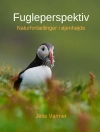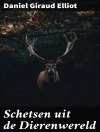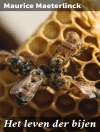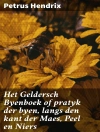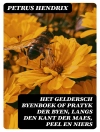In ‘Love’s Meinie: Three Lectures on Greek and English Birds, ‘ John Ruskin employs a unique combination of lyrical prose and meticulous observation to explore the intricate relationships between avian life, nature, and art. Through his three lectures, Ruskin delves into the symbolism and aesthetics of birds in both Greek and English literature, revealing how these creatures embody complexity that reflects broader human experiences and emotions. His work is characterized by its rich imagery, passionate rhetoric, and an underlying moral philosophy, engaging with the cultural significance of ornithology within Victorian society while critiquing the industrialized disconnection from nature. John Ruskin (1819-1900) was a leading art critic, social thinker, and advocate for environmental stewardship in the 19th century. His early fascination with nature blossomed into an impassioned belief in its relevance to art and ethics, which is evident in this work. Ruskin’s experiences as a traveler and his extensive knowledge of art history underpinned his desire to cultivate a deeper appreciation for the natural world, especially through the lens of literature and its representation of flora and fauna. ‘Love’s Meinie’ is a compelling read for those interested in the intersection of art, literature, and nature. Ruskin’s eloquent prose invites readers to reflect on the beauty and significance of birds as symbols of artistic inspiration and spiritual truth. This text is essential for scholars, nature lovers, and anyone seeking to rekindle their connection with the avian world.
Sobre el autor
John Ruskin (1819–1900) was a preeminent Victorian-era English art critic, social thinker, and prolific writer, whose vast literary output has influenced a variety of disciplines ranging from art history to environmentalism. His eloquent prose and command of subject matter established him as a leading intellectual figure of the 19th century. Educated at the University of Oxford, Ruskin’s early appreciation of art led him to pen works such as ‘Modern Painters’ (1843–1860), in which he supported the art of J.M.W. Turner, and ‘The Stones of Venice’ (1851–1853), a significant treatise on Venetian art and architecture. Ruskin’s concern with nature, aesthetics, and morality fused in his writing, embodying his belief that art reflected the values of the society that produced it. This philosophy reverberates through ‘Love’s Meinie: Three Lectures on Greek and English Birds’ (1873), where Ruskin merges ornithological observation with poetic narrative, illustrating his intellectual journey from art criticism to broader cultural and social commentary. His works are characterized by a rich style, moral earnestness, and at times, a prescient advocacy for environmental conservation and sustainable living. Ruskin’s influence extended to the social realm, where his ideas on the economy, work and welfare foreshadowed modern social welfare systems. His literary legacy, though eclipsed in the early 20th century, has been reassessed, positioning Ruskin once again as a significant cultural critic whose thoughts continue to resonate.


